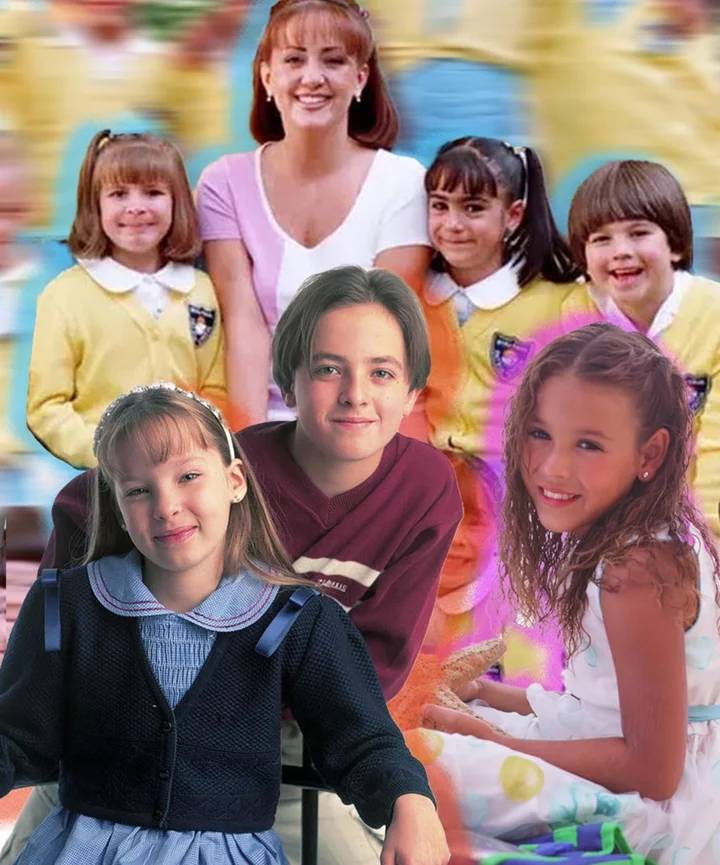If there’s one thing millennials crave, it’s nostalgia — a chance to reminisce about life before student loans and the cost of living became our focus. What better way to channel the fun parts of our youth than eagerly waiting for Princess Diaries III or holding out hope for the Lizzie McGuire reboot? While I want to learn more about Mia Thermopolis’ reign as queen and how Lizzie’s life developed after her epic trip to Rome, I have also found myself thinking about (and rewatching) the telenovelas that shaped my childhood. And I can say, I am pleasantly surprised. Not only do they feel like a hug to the heart, but they are more feminist than I remembered.
Growing up in Tampico, Tamaulipas, Mexico, in the early 2000s, before I moved to Texas, I watched Televisa nearly every day right at 4 p.m., when the Mexican channel aired novelas targeted to children. Different from the ones our parents or grandmothers religiously watched, these shows featured young characters, portrayed by child actors, often navigating life at school and at home.
“These shows featured young characters, portrayed by child actors, often navigating life at school and at home.”
Elsa CavazosTake Amigos x siempre, a novela about a private school for rich children in San Miguel de Allende, Mexico, an institution that keeps the boys and girls separate and expects them to remain quiet at all times. Many of the parents are also strict with antiquated views. We learn that Ana Capistrán Vidal (played by Belinda in her debut role), the main character, has an uncle (Salvador) who lives with a woman he did not marry. Together, they adopt a son. Other parents criticize them because they are not legally married and call their union “unholy;” they also disapprove of the adoption. Eventually, the conversation turns into a lesson on acceptance, making way for more modern ideas of marriage and family.
The novela also tackles toxic masculinity through Salvador’s adopted son, the sensitive, long-haired Pedro (played by Martín Ricca). Society expects him and his male classmates to conform to tradition and mask their feelings, such as Pedro facing ridicule for helping to wash dishes or crying. However, Pedro didn’t stop being who he was.
Then there’s Gilberto and Renata, two siblings who are often at odds because of their father, a misogynist who believes men are better than women. “You cannot let a woman be better than you,” he tells his son, dismissing Renata’s academic achievements. Unfortunately, Renata doesn’t have her mother’s support either. While Renata aspires to go to college, her mother thinks it’s an unnecessary goal. Instead, the mom tells her to aim to marry well and become a housewife. But as a curious young girl with big dreams who had to fight for her parents’ acceptance, I cheered for Renata. Watching it again, I’m glad other young women had someone who could teach them to aspire to more.
“As a curious young girl with big dreams who had to fight for her parents’ acceptance, I cheered for Renata. Watching it again, I’m glad other young women had someone who could teach them to aspire to more.”
Elsa CavazosInspired by Renata’s story, I remembered other children’s telenovelas that empowered young women. In Amy, la niña de la mochila azul, Danna Paola plays a tomboy. Dressed in ripped jeans and with a cap on her head, not everyone is a fan of her stylistic choices. When a teacher makes a comment about her clothing, the principal reminds her that Amy’s personal style is none of her business. It was refreshing — even as someone who liked frilly outfits — to see a girl allowed to live her life as she pleased.
And I’m not the only one who found these young girls inspiring. For 29-year-old Carolina Galue, the character Marisol in ¡Vivan los niños! showed her that girls and women should speak their minds. “She would treat [Diego] in a way that was very direct, and you often don’t see girls or women act that way,” Galue says. “It showed me women can be assertive.”
“It was refreshing — even as someone who liked frilly outfits — to see a girl allowed to live her life as she pleased.”
Elsa CavazosMarisol, a 7-year-old, is dating Diego. She often argues with him about what they consider fair in their friends’ conflicts, and she refuses to compete with another girl for his attention. She knows her worth and doesn’t believe she needs to chase after him. There’s also Simoneta, who has no intention of marrying before she turns 25. “Once you get married, the obligations and subjugation to your husband begins, and life is about living it,” the astute elementary school student says. Simoneta even goes as far as saying that she doesn’t expect her household to follow traditional gender roles: “When I get married, I will make my husband wash the dishes.”
Many of these children’s shows also centered on female friendships — something that resonated with Dalena Salinas, 28. “These novelas touched on difficult home situations, and [these] friends were there for each other for support,” Salinas says. “It did not matter their differences or if they saw life differently; friendship always won in the end.”
“It showed me women can be assertive.”
Carolina GalueJust as much as she enjoyed the more wholesome parts of these shows, Salinas also felt inspired by the female villains. In Cómplices al rescate, Silvana — considered the mean one when compared to her twin, Mariana — is outspoken and bold. Silvana never struggled to defend herself.
“What I admired the most about her is that she was so determined to get ahead in her life that she wouldn’t let anybody walk all over her,” Salinas adds.
To be frank, rewatching these shows have also helped me recognize how problematic they were, too. Characters often made fatphobic comments and classist references. Even more, the novelas almost exclusively had all-white Latine leads, failing to represent large swaths of Latine and Latin American audiences. They relied on tired stereotypes. And sometimes teachers doled out cruel and extreme punishments to the children, like in Amigos x siempre when one of these authority figures traumatizes a student by killing his hamster.
“These novelas touched on difficult home situations, and [these] friends were there for each other for support. It did not matter their differences or if they saw life differently; friendship always won in the end.”
Dalena SalinasStill, some of these children’s series did tell important stories about underrepresented characters. For instance, Amigos x siempre featured Carlitos, a character with Down syndrome. The actor, portrayed by Pablo Tableros, also has Down syndrome. As the sibling of one of the main character Lourdes, Carlitos had a big storyline. For example, when teachers told Lourdes not to bring her brother along, she would defend him and explain that he deserved to be there like everyone else.
Despite their flaws, these telenovelas showed us to take pride in our idiosyncrasies. In Floricienta, a modern take on Cinderella and remake of the Argentine telenovela of the same name, we got the delightful Florencia, a nanny who was the singer in a band. Through beautiful songs — some about heartbreak, others about social class — we learned to embrace being clumsy, curious, and open to love, all while wearing colorful Converses.
“This character gave me this idea that by being myself, I can find other families, other friends, other people who will see me shine for who I am.”
Andrea CortazarThe show helped Andrea Cortazar, 26, realize that being herself was enough. “There were many beautiful messages about self-love and sensitivity,” she says. “It gave me the message about shining [and] being my authentic self: colorful and creative. In my family … trying to hide myself was easier. But this character gave me this idea that by being myself, I can find other families, other friends, other people who will see me shine for who I am.”
I, and so many other former viewers of these children’s novelas, can relate.









